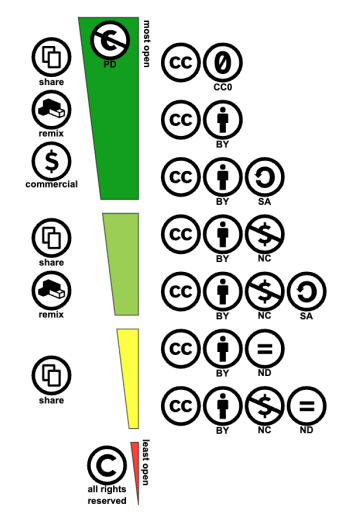
Understanding copyright and permissions is essential for sharing research responsibly and ensuring compliance with legal and ethical standards. This page provides guidance on copyright compliance, fair dealing, licensing, and special considerations when using or creating AI-generated content.
Copyright Compliance
As a researcher or HDR candidate, it’s important to be aware of copyright rules that apply to using, creating, and sharing academic work. Copyright law protects original works, such as articles, images, datasets, and software, from unauthorised use.
For more detailed guidance on fair dealing and how to use copyright-protected material in your research, please see the Avondale copyright website or contact the library.
Licenses at Avondale
Avondale University subscribes to several licenses that allow limited copying and use of copyrighted material for educational purposes. Understanding these licenses can help you use resources responsibly and within the terms of Avondale’s agreements.
For more details on how these licenses apply to your work, please speak to a librarian.
Creative Commons Licensing
Creative Commons (CC) licenses provide a way to openly share your work while retaining control over how others use it. By choosing a Creative Commons license, you can make your research freely accessible while specifying terms for its reuse.

"Creative commons license spectrum" by Shaddim is licensed under CC BY 4.0
To learn more about Creative Commons licenses or to discuss which license is right for your work, please visit Creative Commons Resources or book a consultation with a librarian
Copyright and AI
The use of AI in research and content creation raises unique copyright considerations, as AI-generated content may not be automatically protected by copyright under Australian law.
For further assistance on any aspect of copyright and permissions, including fair dealing, Creative Commons licenses, or managing permissions for third-party content, please reach out to the library team. We’re here to help you navigate copyright complexities and make informed choices about sharing your work.
Avondale University acknowledges our Sovereign God as Creator and Provider of all things. We respectfully acknowledge the Awabakal and Darramuragal people as the traditional custodians of the lands on which we live, work, study and worship across our Lake Macquarie and Sydney campuses. We pay our respects to Elders past, present and emerging, and extend that respect to all First Nations People.
Avondale University is a member of the worldwide Seventh-day Adventist system of universities and colleges.
CRICOS Provider No.: 02731D. RTO: 91191. TEQSA: PRV12015. ABN: 53 108 186 401.
© Avondale University Ltd 2025